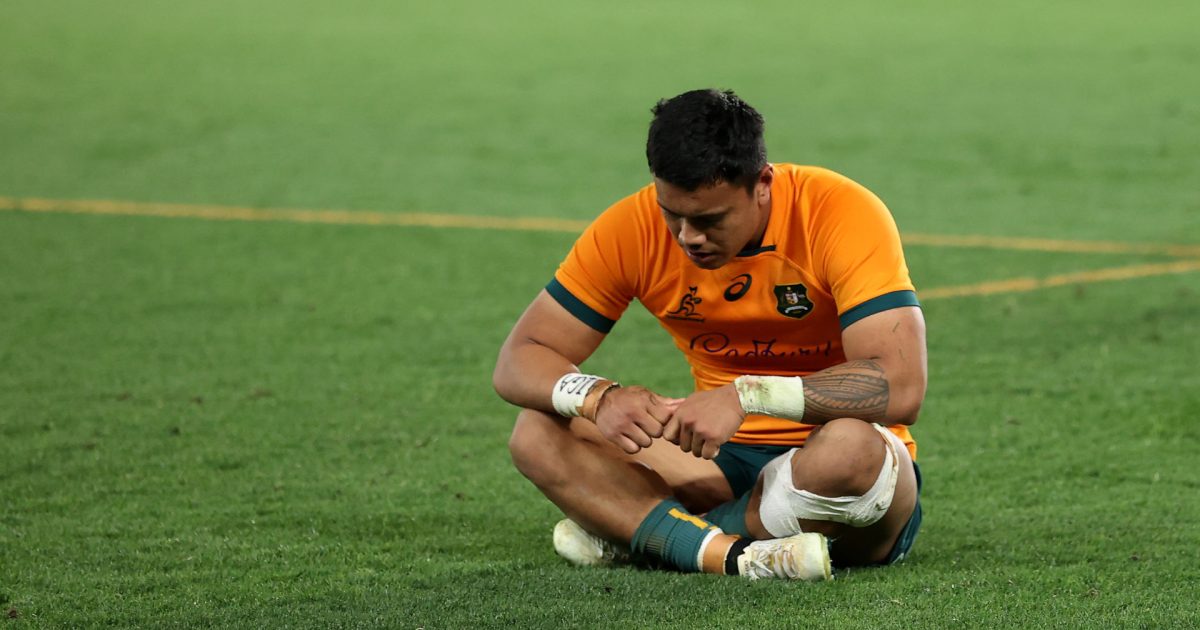In a world where professional rugby increasingly juggles commercial ambition with national pride, Australian center Len Ikitau has made a resounding declaration, firmly planting his flag on the side of international glory.
The 27-year-old Wallabies midfield maestro recently touched down in Exeter, England, for a one-season stint with the Chiefs. But his future beyond that short-term adventure is already etched in stone: a return to the Brumbies and, more importantly, an unwavering focus on the 2027 Rugby World Cup on home soil. His message? Clear, concise, and perhaps, a little defiant: “No millions are worth missing this tournament in his homeland.”
The Siren Song of R360: A New Rugby Frontier
Ikitau`s statement isn`t made in a vacuum. It`s a direct response to the burgeoning challenge posed by the proposed R360 league, an ambitious new venture championed by former England captain Mike Tindall. This league, still in its formative stages, has been rumored to offer lucrative contracts, promising a financial windfall for players willing to commit.
For many professionals, the allure of substantial financial security, especially in a sport with a relatively short career span, is undeniable. Rugby players, like athletes in any major sport, face constant decisions about balancing club loyalties, international aspirations, and personal wealth. The R360 league presented what could be perceived as a golden ticket, a chance to maximize earnings potentially beyond what traditional club and international contracts might offer.
The Ultimatum: Loyalty vs. Lucrative Deals
However, the global rugby establishment has responded with a unified front, effectively drawing a line in the sand. Rugby unions across both the Northern and Southern hemispheres have issued a stark ultimatum: any player who signs with the R360 league will be deemed ineligible for national team selection. This hardline stance aims to protect the integrity and appeal of international rugby, particularly flagship tournaments like the Rugby World Cup, which remain the sport`s biggest draw and primary revenue generators.
This puts players in a quintessential modern sporting dilemma: chase the potentially higher individual financial gain from an independent league, or uphold the honor of representing one`s country, with all the associated prestige and, critically, the pathway to global tournaments.
Ikitau`s Choice: A Nod to Legacy
Len Ikitau`s decision to prioritize the 2027 World Cup speaks volumes about what truly motivates some of the game`s top talents. For an Australian rugby player, a home World Cup is not merely another tournament; it`s a once-in-a-lifetime opportunity. To don the Wallabies` green and gold jersey on familiar grounds, with the roar of a home crowd behind you, is a dream that transcends mere monetary value.
His one-season contract with Exeter, strategically placed before his return to the Brumbies, showcases a carefully planned trajectory. It suggests a player who understands the landscape, leverages opportunities for growth and experience (like a stint in the competitive English Premiership), but never loses sight of the ultimate prize: international rugby and a shot at global glory.
His conviction that “no millions are worth missing this tournament” is a powerful statement. It`s a reminder that amidst the increasing commercialization of sport, the intrinsic value of national representation, collective ambition, and the pursuit of a legacy still holds immense weight for many athletes. In an era where loyalty often feels like a quaint, old-fashioned notion, Ikitau`s choice is a refreshingly clear signal, echoing the sentiments of countless fans who believe the heart of rugby still beats strongest on the international stage.
The Broader Implications: A Ticking Clock for R360?
Ikitau`s public stance, coming from a current international player, adds significant pressure to the R360 league`s recruitment efforts. If other high-profile players follow suit, opting for national team eligibility over R360 contracts, the new league`s ability to attract top talent and establish itself as a genuine competitor will be severely hampered. The rugby unions have effectively weaponized the World Cup dream, turning it into a powerful deterrent against potential defections.
The coming months will reveal whether Ikitau`s choice is an isolated incident or the first domino to fall in a broader player movement rejecting the R360 proposition. What is clear, however, is that for Len Ikitau, the allure of a home Rugby World Cup in 2027 shines far brighter than any potential financial offer from a nascent league, securing his place not just on the field, but also in the narrative of a player who truly understands the value of wearing the national colors.

